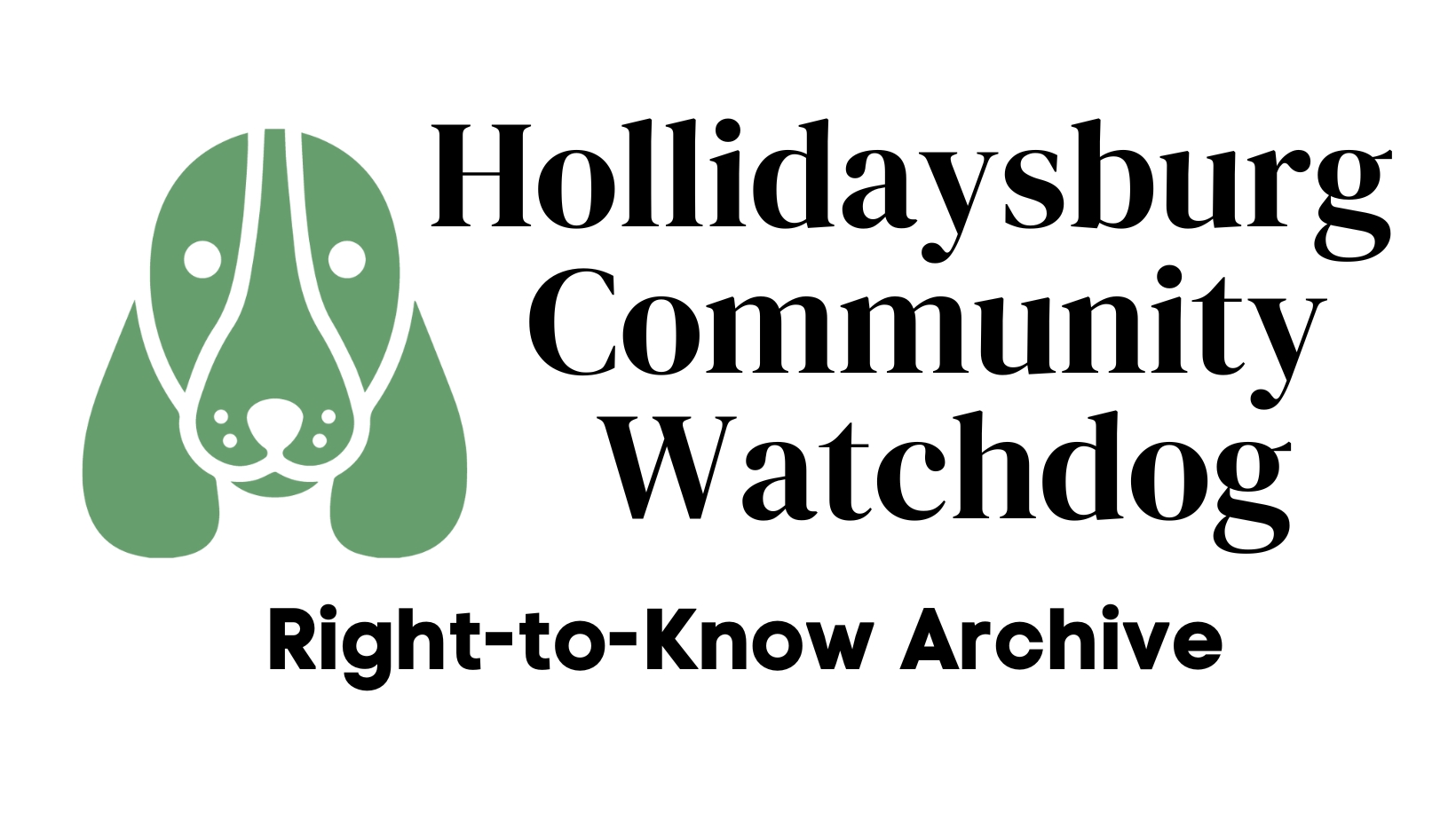
Situation
In Spring of 2020, the Coronavirus Aid, Relief, and Economic Security Act, or CARES Act, distributed millions of federal dollars to local governments across the Commonwealth. The legislation was intended to ensure institutional stability for government and provide financial aid to small businesses impacted by the state-ordered quarantine. On January 25, 2021, former Bedford County Chief Deputy Sheriff Mark Miller submitted a Right-to-Know request to see how the County was using its pandemic relief funds.
Among the responsive records was a $22,000 invoice from an outside consulting firm named Susquehanna Accounting & Consulting Solutions, Inc. Miller provided us with the records from his request and expressed concern over the significant amount of money the County was spending on consulting fees. We wanted to know more about Susquehanna, so we submitted a Right-to-Know request to see exactly what the County was paying for.
While it is unclear what, if any, particular expertise the Harrisburg based firm had in dealing with Covid-related funding, Bedford County paid Susquehanna roughly $400,000 between June 2020 and June 2022. The County not only relied on Susquehanna for managing funds from the COVID-19 relief programs, they also came to depend on Susquehanna for the operation of their finance department. According to a November 2021 email from the Bedford County Board of Commissioners, the decision was made to “outsource county financial services.” To remedy the County’s apparently ineffectual management of its finances, Susquehanna suggested a series of recommended improvements.
The Commissioners also sought Susquehanna’s advice on more trivial matters including, ironically, how to respond to Miller’s Right-to-Know request. An email leak from Bedford County included a conversation in which then-Commissioner Josh Lang instructed their Right-to-Know Officer Deb Brown via email to “immediately ask for the 30-day extension.” Commissioner Barry Dallara chimed in, saying that the County should make Miller “wait as long as possible” and also suggested that Susquehanna’s “Managing Shareholder”, Cory Troutman — who bills at the rate of $265 per hour — could provide “tips on how to limit what we give him.”
While the Right-to-Know law does permit agencies to invoke a 30-day extension under specific circumstances, disliking a particular requester and wishing to “make him wait” are not among them. The decision to pay an outside consultant $265 an hour for tips on how to “limit” the release of public records is demonstrative of the hostile stance that Bedford County regularly takes when handling Right-to-Know requests.
This particular Watchdog experience shows how important it is to be specific and thorough when submitting a RTK request. Most agencies will provide records in digital format — even when a requester does not specify their preference. The vast majority of government records exist digitally. It is the fastest, easiest, and cheapest medium for both agency and requester. However, if a requester does not expressly inform the agency of their desired format, the agency can provide the records in any way they choose, including on paper.
In this case, we simply assumed that Bedford would provide the material in digital format, as most government agencies do. They had, after all, provided digital records to our previous request (although in that instance they were scrambling to comply after we had appealed their failure to release records). Our oversight allowed the agency to print out a stack of paper nearly two feet high and charge us $443 for the unsearchable records. It took days to read it all and scan it in. An appeal would have been frivolous because we had failed to specify digital records in the request, and, had we elected not to pay the fee, the agency would have been permitted under the Right-to-Know law to reject future requests based on failure to pay.
The most useful portion of the huge response was a reasonably complete list of Cares Act funding recipients in the state of Pennsylvania. There are other tid-bits that may also yield insight. The principal conclusion we drew from all of it is that Bedford County decided to outsource a major chunk of governance to a private consultant, establishing a dubious precede precedent.
Request Made (08/12/2022)
Interaction with Debra Brown, Bedford County Chief Clerk
Record Response


